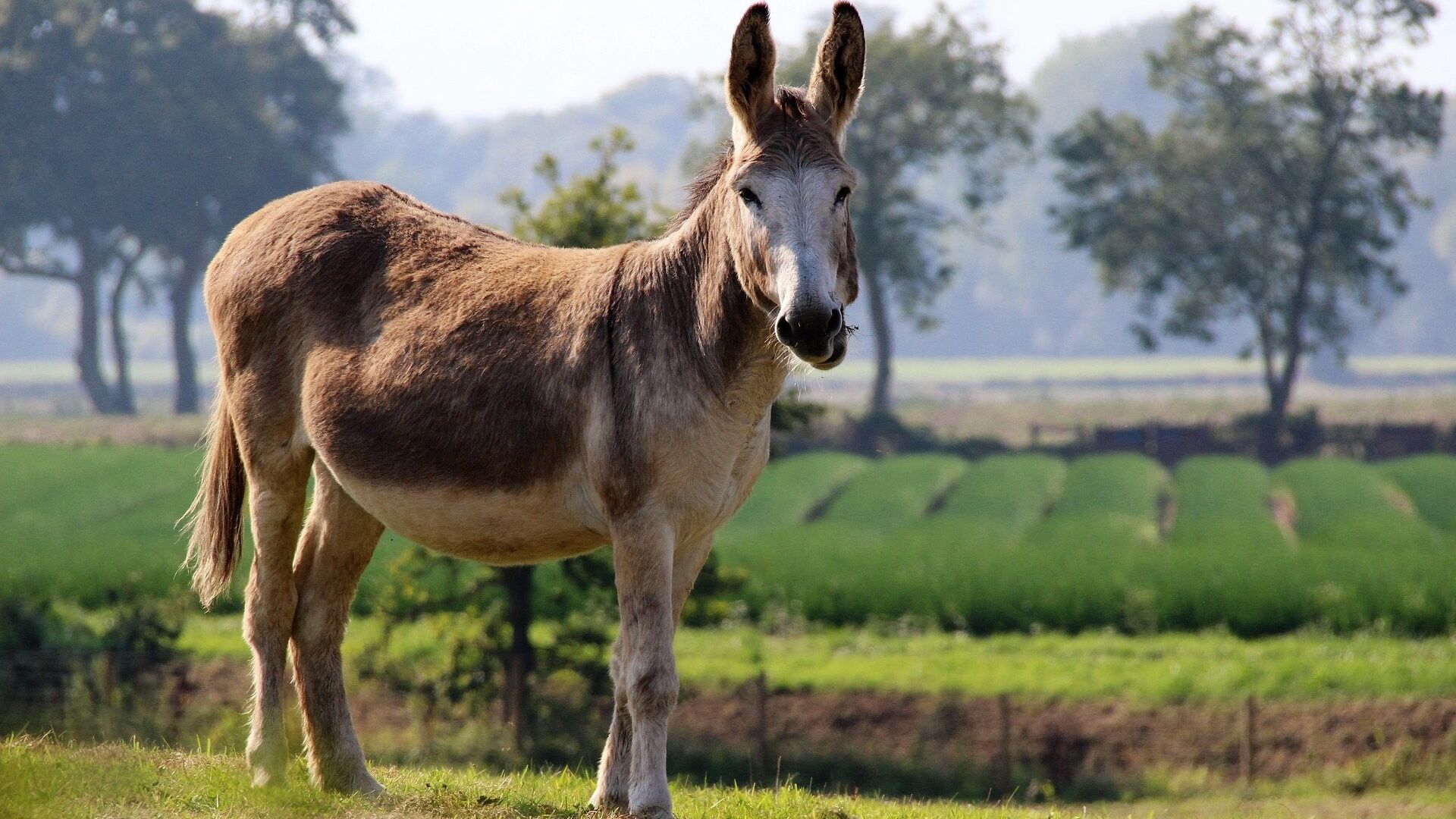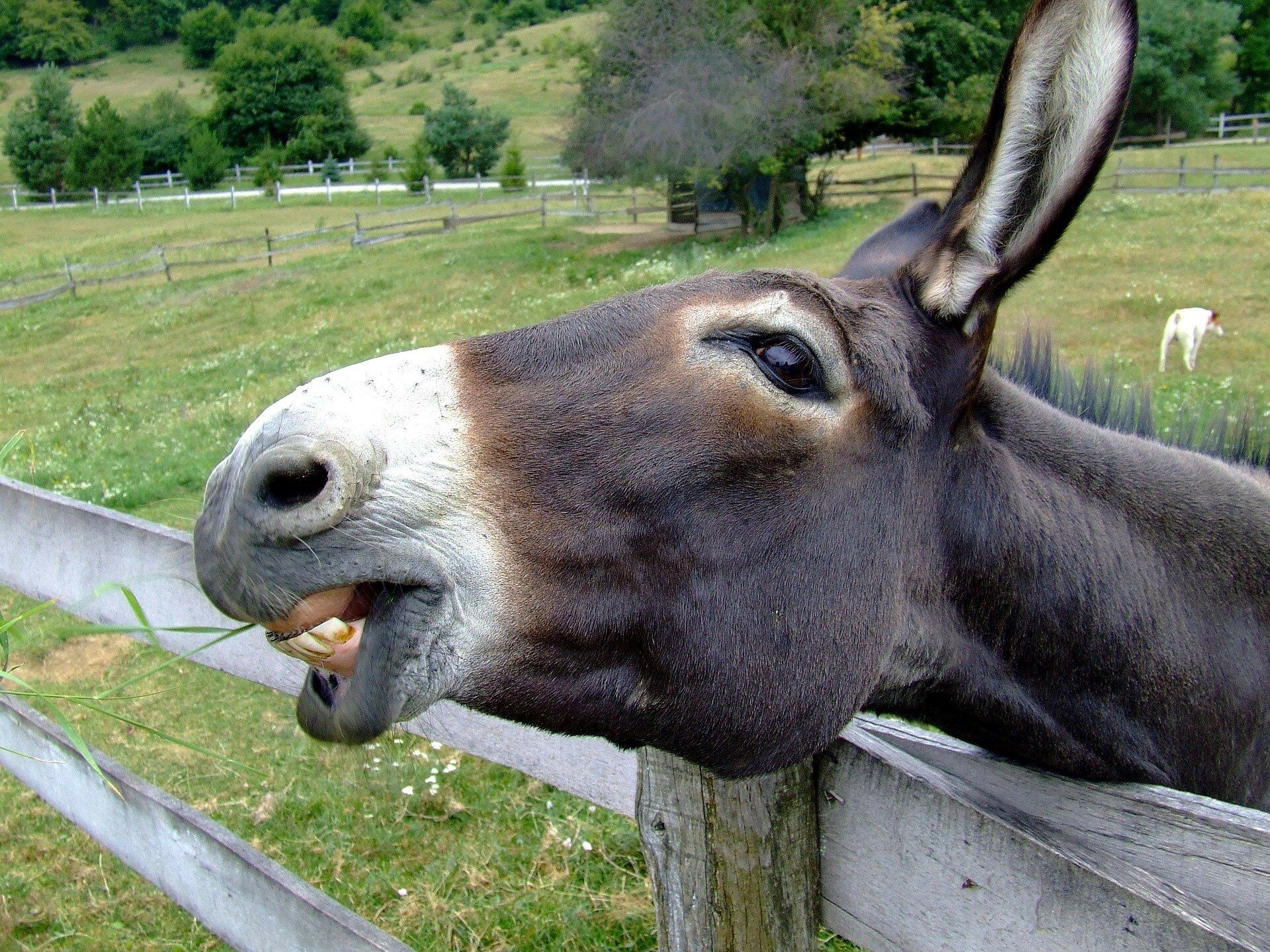https://sputnikglobe.com/20220908/illicit-consignment-of-7000-donkey-penises-worth-around-478000-seized-in-nigeria-1100550243.html
Illicit Consignment of 7,000 Donkey Penises Worth Around $478,000 Seized in Nigeria
Illicit Consignment of 7,000 Donkey Penises Worth Around $478,000 Seized in Nigeria
Sputnik International
An overpowering smell coming from an assortment of sacks in the animal export section of a Lagos airport had alerted Nigeria's customs authorities to the... 08.09.2022, Sputnik International
2022-09-08T14:38+0000
2022-09-08T14:38+0000
2022-11-24T11:08+0000
africa
donkey
penis
west africa
nigeria
https://cdn1.img.sputnikglobe.com/img/104538/28/1045382844_0:100:1920:1180_1920x0_80_0_0_146a7f50275d2b4b04fd04b785bbf10b.jpg
A consignment of 7,000 donkey penises estimated to be worth 200 million Naira ($478,000; £416,000) has been intercepted by Nigeria's customs service at an airport in Lagos.The 16 sacks of animal parts had been found in the animal export section of Murtala Muhammed airport, with Hong Kong as their destination, according to Sambo Dangaladima, the Nigeria Customs Service area commander.The official told journalists that it was the fetid smell coming from the sacks that aroused the suspicion of the authorities.The consignment had been “falsely declared … as cow male genitals (but) after due examination, my export officers discovered they were donkey male genitals,” said Dangaladima.An investigation has been launched into the seized items, with a suspect linked to the malodorous package believed to have escaped.Donkey parts, export of which Nigeria prohibits, are particularly sought after in China, where they are used to make traditional potency-boosting medicine.The current discovery is rare, as typically it is donkey skins that are smuggled out of the country. Nigerian senators in 2021 proposed banning the killing of donkeys and the export of their skins.
africa
west africa
nigeria
Sputnik International
feedback@sputniknews.com
+74956456601
MIA „Rossiya Segodnya“
2022
News
en_EN
Sputnik International
feedback@sputniknews.com
+74956456601
MIA „Rossiya Segodnya“
Sputnik International
feedback@sputniknews.com
+74956456601
MIA „Rossiya Segodnya“
donkey, penis, west africa, nigeria
donkey, penis, west africa, nigeria
Illicit Consignment of 7,000 Donkey Penises Worth Around $478,000 Seized in Nigeria
14:38 GMT 08.09.2022 (Updated: 11:08 GMT 24.11.2022) An overpowering smell coming from an assortment of sacks in the animal export section of a Lagos airport had alerted Nigeria's customs authorities to the discovery.
A consignment of 7,000 donkey penises estimated to be worth 200 million Naira ($478,000; £416,000) has been intercepted by Nigeria's customs service at an airport in Lagos.
The 16 sacks of animal parts had been found in the animal export section of Murtala Muhammed airport, with Hong Kong as their destination, according to Sambo Dangaladima, the Nigeria Customs Service area commander.
The official told journalists that it was the fetid smell coming from the sacks that aroused the suspicion of the authorities.
The consignment had been “falsely declared … as cow male genitals (but) after due examination, my export officers discovered they were donkey male genitals,” said Dangaladima.
An investigation has been launched into the seized items, with a suspect linked to the malodorous package believed to have escaped.
Donkey parts, export of which Nigeria prohibits, are particularly sought after in China, where they are used to make traditional potency-boosting medicine.
The current discovery is rare, as typically it is donkey skins that are smuggled out of the country. Nigerian senators in 2021 proposed banning the killing of donkeys and the export of their skins.
“The major beneficiary in this trade is the donkey (skin) merchants in China. This animal is facing extinction (in Nigeria) and it is an animal you cannot breed in large numbers because of the very low rate of fertility,” Muhammad Datti, a federal lawmaker supporting the proposed ban, was cited as saying.



